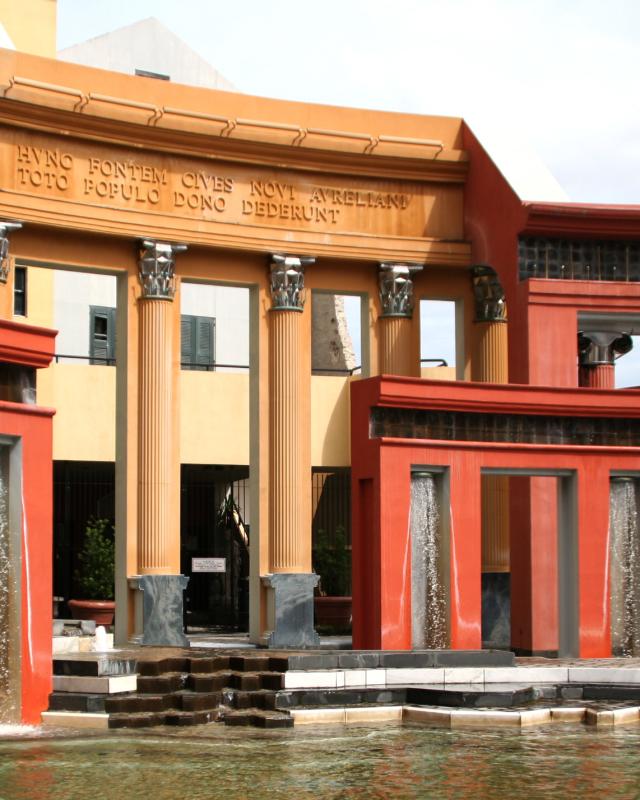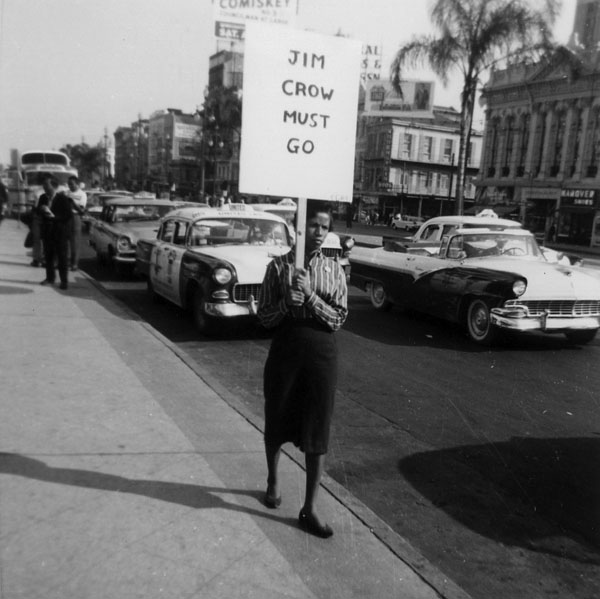Posted on Jan 16, 2019 in Legislation, Local Issues
- Louisiana State Law Institute Reports. Battery of a dating partner: RS 14:34.9.1. Baton Rouge, Louisiana.
- 2011 Louisiana Laws Revised Statutes TITLE 14 — Criminal law RS 14:107 — Vagrancy.

Louisiana law provides several compulsory education exemptions for students, including: Children mentally, physically, or emotionally incapacitated from the ability to perform school duties or otherwise unable to profit from further schooling as certified by a psychiatrist or other professional. Burglary and robbery alarm systems, false alarm reduction: chapter 30. Businesses: chapter 34. Carnival, mardi gras.
Did you know that the Law of Louisiana is unique from all other state laws in the US? It's true! That's because whereas the other 49 states base their interpretation of the law on what is referred to as 'common law,' Louisiana law derives from Napoleonic Code.
To learn why this is, we have to look back in history a little bit. Louisiana adopted its laws from the French and Spanish who colonized and inhabited the land before America purchased it. Common law, on the other hand, originates from Great Britain and was brought over to America during the colonial period. Other countries once colonized by Britain still use common law, like Australia, India, Israel, and more.
Though it's the exception in America, Napoleonic code—or its contemporary manifestation, commonly referred to as 'civil law'—is actually one of the more common forms of legal jurisprudence globally.
Louisiana's brand of civil law is a composite of the French and Spanish versions. There's still some debate among legal historians as to the extent of the Spanish influence.
Okay, but what does it mean?
History lessons are fun, but what's it all mean for us in the day-to-day?

In theory, the primary differences between civil and common law lie in the implementation and interpretation of the law. Common law employs what's known as stare decisis, which is latin for 'to stand by things decided.' This legal principle relies on precedence for verdicts, where the outcome of similar cases can impact present ones.
Civil law is more codified, relying on direct interpretation of the law or legistlation applicable to the specific legal situation.
Another way to put it might be that Louisiana law—and civil law in general—can allow more for individual judges' interpretation of the law to hold sway over a more objective or historical understanding of the law.
But what does it mean mean? I mean what does it mean for me?
Fair question. In modern law, at the end of the day, these discrepancies in jurisprudence don't amount to huge differences in implementation. Louisiana's criminal justice system ultimately looks a lot like the criminal justice systems in many other states.
The most notable differences are found in nomenclature and procedure. It means that certain legal concepts and laws that are called one thing in the rest of the country, get called something else in Louisiana.
For example, statute of limitations is a statute instating a period of restrictions for bringing certain kinds of legal action, as in personal injury cases. In Louisiana we call it prescription, but it means the same thing.
The most notable difference in procedure comes in the sphere of trust and estates law, real estate law, and inheritance. In Louisiana, we call this Succession and Donations, where it's Trust and Estates in the rest of the country. Much of the legality surrounding the way land and property is passed down is unique to Louisiana.
For Louisiana Law You Need a Louisiana Lawyer
Above all, what all this means is that if you have a legal issue to deal with in Louisiana, always make sure you hire local Louisiana attorneys who understand the in's and out's of our unique brand of law. Though the differences can sometimes be small or nuanced, they can sometimes have impactful ramifications on legal proceedings.
The experienced lawyers at Bloom Legal have been serving the greater New Orleans area for a decade and a half. Call us today for a free consultation, and let us answer any questions you might have and start building an individualized strategy for your case.
Please enable JavaScript to view the comments powered by Disqus.GET YOUR FREE CONSULTATION
Available 24/7 for immediate help. Call:504-599-9997Categories


Louisiana law provides several compulsory education exemptions for students, including: Children mentally, physically, or emotionally incapacitated from the ability to perform school duties or otherwise unable to profit from further schooling as certified by a psychiatrist or other professional. Burglary and robbery alarm systems, false alarm reduction: chapter 30. Businesses: chapter 34. Carnival, mardi gras.
Did you know that the Law of Louisiana is unique from all other state laws in the US? It's true! That's because whereas the other 49 states base their interpretation of the law on what is referred to as 'common law,' Louisiana law derives from Napoleonic Code.
To learn why this is, we have to look back in history a little bit. Louisiana adopted its laws from the French and Spanish who colonized and inhabited the land before America purchased it. Common law, on the other hand, originates from Great Britain and was brought over to America during the colonial period. Other countries once colonized by Britain still use common law, like Australia, India, Israel, and more.
Though it's the exception in America, Napoleonic code—or its contemporary manifestation, commonly referred to as 'civil law'—is actually one of the more common forms of legal jurisprudence globally.
Louisiana's brand of civil law is a composite of the French and Spanish versions. There's still some debate among legal historians as to the extent of the Spanish influence.
Okay, but what does it mean?
History lessons are fun, but what's it all mean for us in the day-to-day?
In theory, the primary differences between civil and common law lie in the implementation and interpretation of the law. Common law employs what's known as stare decisis, which is latin for 'to stand by things decided.' This legal principle relies on precedence for verdicts, where the outcome of similar cases can impact present ones.
Civil law is more codified, relying on direct interpretation of the law or legistlation applicable to the specific legal situation.
Another way to put it might be that Louisiana law—and civil law in general—can allow more for individual judges' interpretation of the law to hold sway over a more objective or historical understanding of the law.
But what does it mean mean? I mean what does it mean for me?
Fair question. In modern law, at the end of the day, these discrepancies in jurisprudence don't amount to huge differences in implementation. Louisiana's criminal justice system ultimately looks a lot like the criminal justice systems in many other states.
The most notable differences are found in nomenclature and procedure. It means that certain legal concepts and laws that are called one thing in the rest of the country, get called something else in Louisiana.
For example, statute of limitations is a statute instating a period of restrictions for bringing certain kinds of legal action, as in personal injury cases. In Louisiana we call it prescription, but it means the same thing.
The most notable difference in procedure comes in the sphere of trust and estates law, real estate law, and inheritance. In Louisiana, we call this Succession and Donations, where it's Trust and Estates in the rest of the country. Much of the legality surrounding the way land and property is passed down is unique to Louisiana.
For Louisiana Law You Need a Louisiana Lawyer
Above all, what all this means is that if you have a legal issue to deal with in Louisiana, always make sure you hire local Louisiana attorneys who understand the in's and out's of our unique brand of law. Though the differences can sometimes be small or nuanced, they can sometimes have impactful ramifications on legal proceedings.
The experienced lawyers at Bloom Legal have been serving the greater New Orleans area for a decade and a half. Call us today for a free consultation, and let us answer any questions you might have and start building an individualized strategy for your case.
Please enable JavaScript to view the comments powered by Disqus.GET YOUR FREE CONSULTATION
Available 24/7 for immediate help. Call:504-599-9997Categories
- Personal Injury
How To Obtain An Orleans Parish Marriage License
REQUIREMENTS FOR OBTAINING A MARRIAGE LICENSE
ORLEANS PARISH, NEW ORLEANS, LOUISIANA
DUE TO COVID RESTRICTIONS, ALL MARRIAGE LICENSE APPLICATANTS MUST CALL (504) 593-5115 OR (504) 593-5116 TO MAKE AN APPOINTMENT TO OBTAIN A LICENSE TO MARRY FROM THE CENTRAL OFFICE OF VITAL RECORDS.
The Orleans Parish Marriage License Office is located at Benson Tower, 1450 Poydras Street, Suite 407, in downtown New Orleans. Licenses are issued between 8:15 a.m. and 3:15 p.m., Monday through Friday (excluding state holidays). The licenses are valid in any parish in the State of Louisiana.
Orleans Parish Marriage Licenses may also be purchased at the Second City Court of New Orleans in the Historic Algiers Courthouse at 225 Morgan Street in Algiers. Licenses are issued between 9:00 a.m. and 4:00 p.m. Monday through Friday (excluding state holidays).
In order to apply for a marriage license, both parties must be present and present all required documents. If a party is absent, the application will only be accepted if their signature on the application has been separately notarized. If the absent party is a member of the US armed forces, a copy of a military ID can be accepted in lieu of a signature, but at least one party's in-person signature is required to submit an application.
Applicants must present the following:
State Dating Laws In New Orleans La Times
- A current driver's license, current state ID or passport.
- A certified birth certificate or a certified birth card for both parties (no photocopies accepted). A certified translation must be attached, if the birth certificate is not in English. If not born in the US or a US territory, the applicant(s) must also present a valid, unexpired passport or a valid, unexpired visa with attached I-94 form.
- If a certified birth certificate cannot be produced, a waiver must be presented in accordance with LA R.S. 9:228.
- Both applicants must provide their Social Security numbers if born in the United States. If not born in the US or a US territory, the applicant(s) must present a valid passport from their country of birth or a visa with attached I-94 form.
- If either party has been divorced, the individual must provide a certified copy of the final divorce decree. A widow or widower must provide a certified copy the death certificate of the former spouse when they apply for a license to marry.
- Fees of $27.50 payable by cash, check, credit/debit card, or money order only (non-refundable), plus $5 for each certified copy of the marriage certificate desired by the customer.
An Application to Obtain an Orleans Parish Marriage License is available and may be completed by the parties prior to applying in person.
24-Hour Waiting Period
A 24-hour waiting period is required by law between the time of issuance of the license and the ceremony.
Judges of the First or Second City Courts are authorized by law to waive the waiting period for Louisiana residents and they can do this during their Monday-Friday hours of operation ONLY.
If both parties reside outside of Louisiana and the services will occur in Orleans parish AND be performed by a registered Orleans officiant, that officiant can waive this waiting period.
The waiver must be attached to the completed marriage certificate when it is returned to Vital Records.
State Dating Laws In New Orleans La French Quarter
Marriages Under The Age of 18
Per Louisiana law effective August 1, 2019, anyone under the age of sixteen (16) cannot be married in Louisiana.
Applicants aged sixteen (16) or seventeen (17) cannot marry someone three (3) years or more older than themselves.
Those 16-and 17-year- olds who wish to marry must present the following:
1) Each applicant must have: the written consent of both parents, OR the written consent of the parent who has legal custody, OR the written consent of their legal guardian.
State Dating Laws In New Orleans La Drury Inn
AND
2) An order from a Judge of Juvenile Court.
Expiration of Marriage License County dating saint francis wisconsin.
A marriage license expires and becomes invalid at midnight thirty (30) days after the date of issuance. If the service is postponed beyond the expiration date, you must return the expired license and purchase a new one.
Certified Copies of the Marriage Certificate
You are encouraged to purchase one or more certified copies of your Marriage Certificate when you apply for your license. Certified copies of a Marriage Certificate cost $5.00 + a $.50 mailing charge per transaction.
MARRIAGE LICENSE: $27.50
CASH, CHECK, CREDIT/DEBIT CARDS, OR MONEY ORDERS ACCEPTED
ALL FEES ARE NON-REFUNDABLE.
State Dating Laws In New Orleans La Parish
Forms
